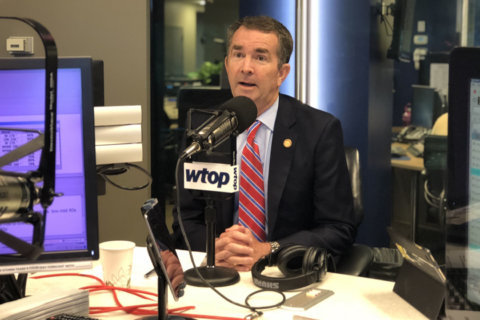WASHINGTON — Pass rates fell by 1 to 2 percent on Virginia’s Standards of Learning tests this year compared with last in all categories of tests, according to results released Wednesday by the state’s Department of Education.
The 2017–2018 school year results also showed continued, significant achievement gaps, not only between low-income students and others, but also between students identifying as white or Asian and students identifying as black or Hispanic.
In a statement, Superintendent of Public Instruction James Lane said students are performing at a higher level than when revised standardized tests were introduced six years ago.
Still, more than one in five students statewide are failing math and English tests.
Gov. Ralph Northam said the goal should be every child having access to a world-class education.
“We want our numbers to be increasing and … the SOLs is something that we use to monitor the progress of our students and our teachers,” Northam said.
On English reading tests, the proportion of students meeting minimum standards statewide dropped from 80 percent the preceding two school years to 79 percent in 2017–2018.
On English writing tests, 78 percent of students met minimum requirements this year, down from 79 percent last year but up from 77 percent in 2015–2016.
On math tests, pass rates continued to decline. Eighty percent of students met minimum standards in 2015–2016; 79 percent did in 2016–2017; and 77 percent had passing scores on the 2017–2018 tests.
In science, 81 percent of students passed SOL exams, down from 82 percent last year and 83 percent the year before that.
On history and social science tests, pass rates dropped to 84 percent this year statewide, from 86 percent each of the previous two years.
In each broad category, pass rates for students from low-income families were 11 to 14 points lower than the average for all students. Black students faced a similar gap, while the gap for Hispanic students was slightly smaller in writing, math and history and social science.
“It is a way of monitoring how students are progressing, also monitors how our teachers are doing, accountability is certainly very, very important,” Northam said on WTOP’s Ask the Governor.
While the tests are not going anywhere anytime soon, Northam suggested the state’s education system needs to focus more on teaching and measuring skills that directly translate into a job.
“There were good intentions when the SOLs were designed, but we need to start working with our children, teaching them how to think creatively rather than how to take a standardized or multiple-choice test,” Northam said.
Schools spend a significant amount of time teaching the required material and administering the tests each year.







